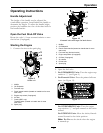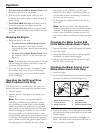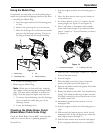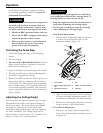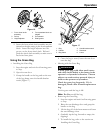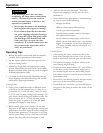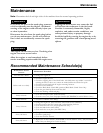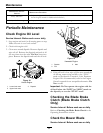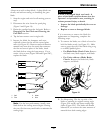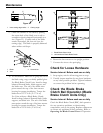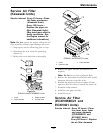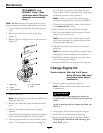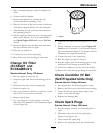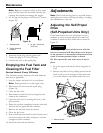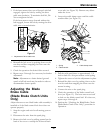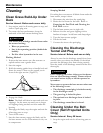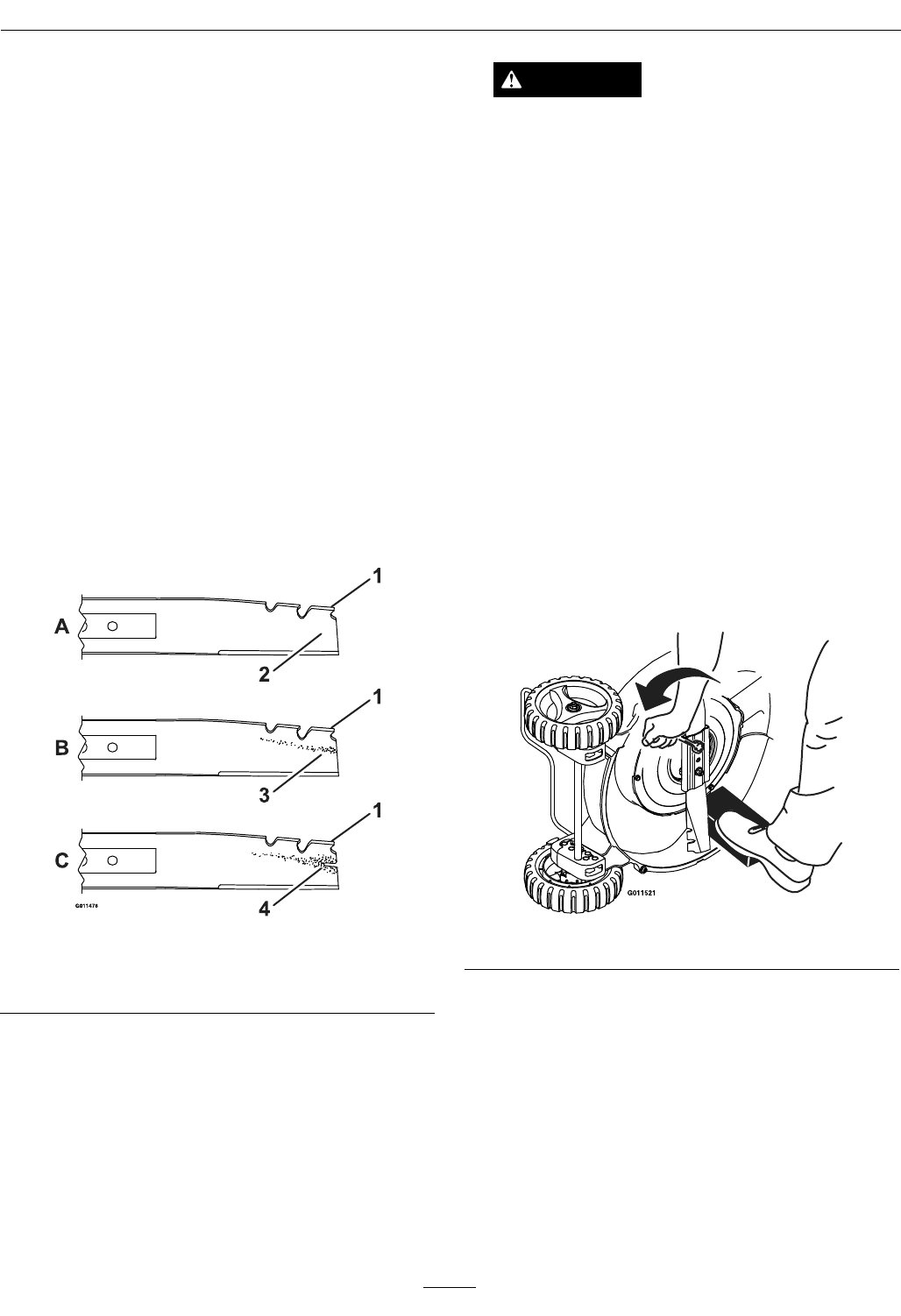
Maintenance
Always mow with a sharp blade. A sharp blade cuts
cleanly and without tearing or shredding the grass
blade.
1. Stop the engine and wait for all moving parts to
stop.
2. Disconnect the wire from the spark plug
(
Figure 9 and Figure 10).
3. Drain the gasoline from the fuel tank. Refer to
Emptying the Fuel Tank and Cleaning the
Fuel Filter section.
4. Tip the lawn mower onto its right side.
5. Inspect the blade for sharpness and wear,
especially where the at and the curved parts
meet (see
Figure 20). Because sand and abrasive
material can wear away the metal that connects
the at and curved parts of the blade, check
the blade before using the lawn mower. If you
notice a slot or wear (
Figure 20B and Figure 20C),
replace the blade.
Figure 20
1. Sail
3. Wear
2. Flat
4. Slot
Note: For the best performance, install a new
blade before the cutting season begins. During
the year, le down any small nicks to maintain the
cutting edge.
DANGER
A worn or damaged blade can break. A
piece of the blade could be thrown into the
operator’s or bystander’s area, resulting in
serious personal injury or death.
• Inspect the blade periodically for wear or
damage.
• Replace a worn or damaged blade.
If it is necessary to remove the blade for
replacement or sharpening, complete the
following steps:
A. To remove the blade, use a block of wood to
hold the blade steady (see
Figure 21). Make
sure to grasp the end of the blade using a rag
or a thickly padded glove.
• For Blade Brake Clutch Units: Remove
the blade nuts, blade support, and blade.
• For Units without a Blade Brake
Clutch: Remove the blade bolt, blade
support, and blade.
Figure 21
B. For Sharpening: File the top side of the
blade to maintain its original cutting angle
(Figure 22A and B) and inner cutting edge
radius (Figure 22A). The blade will remain
balanced if you remove the same amount of
material from both cutting edges.
23



